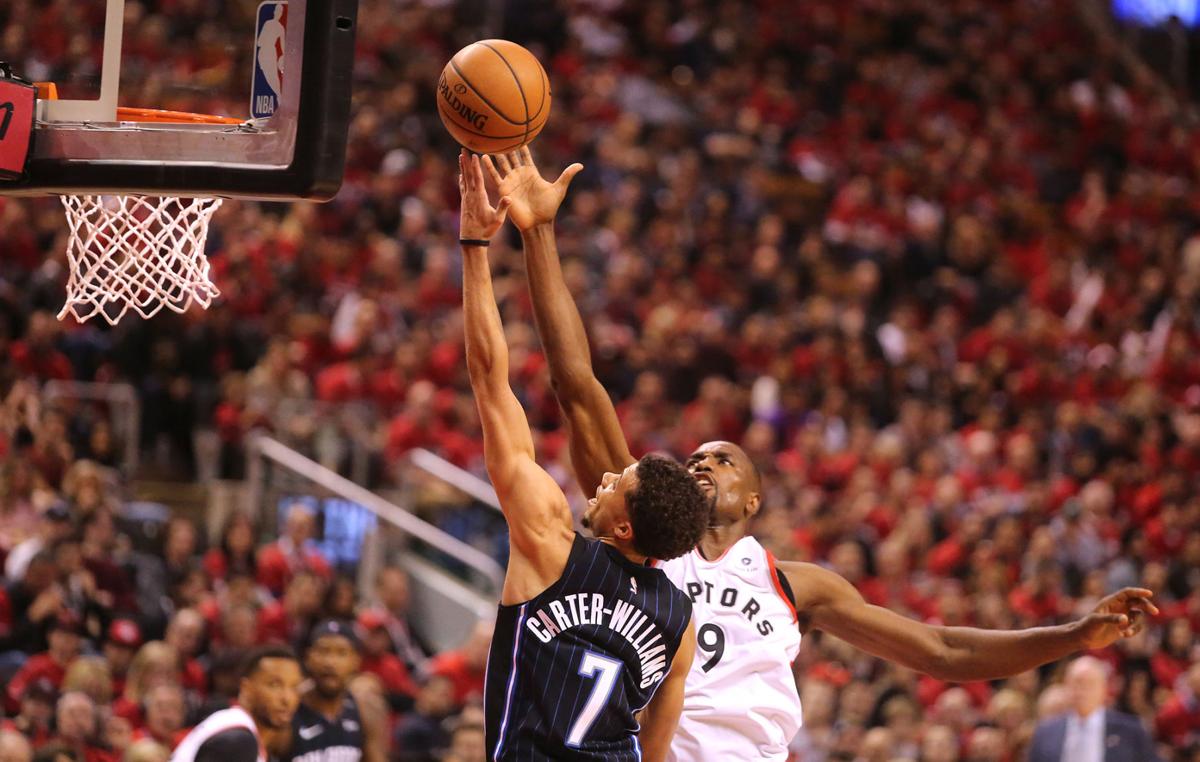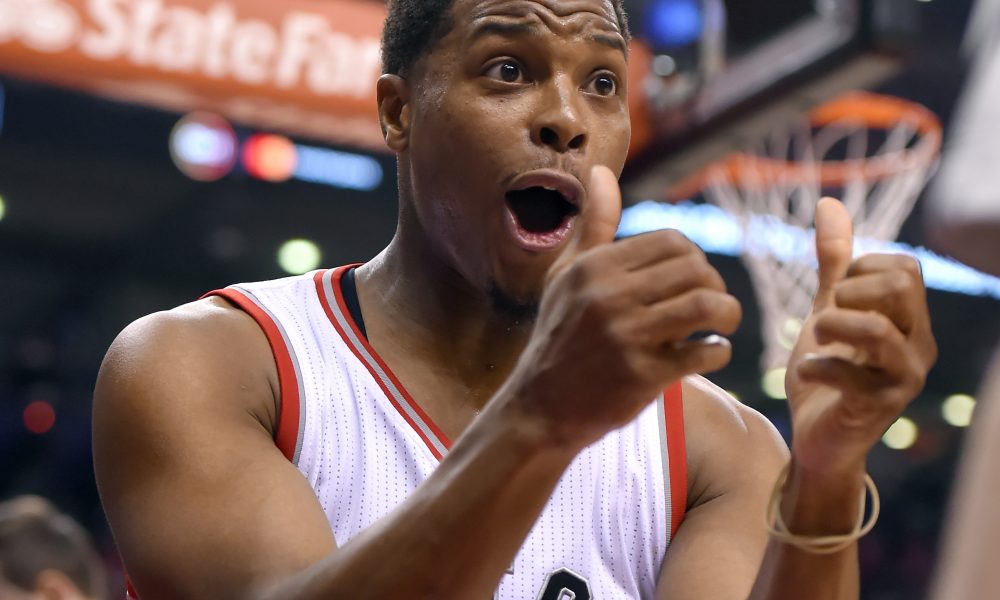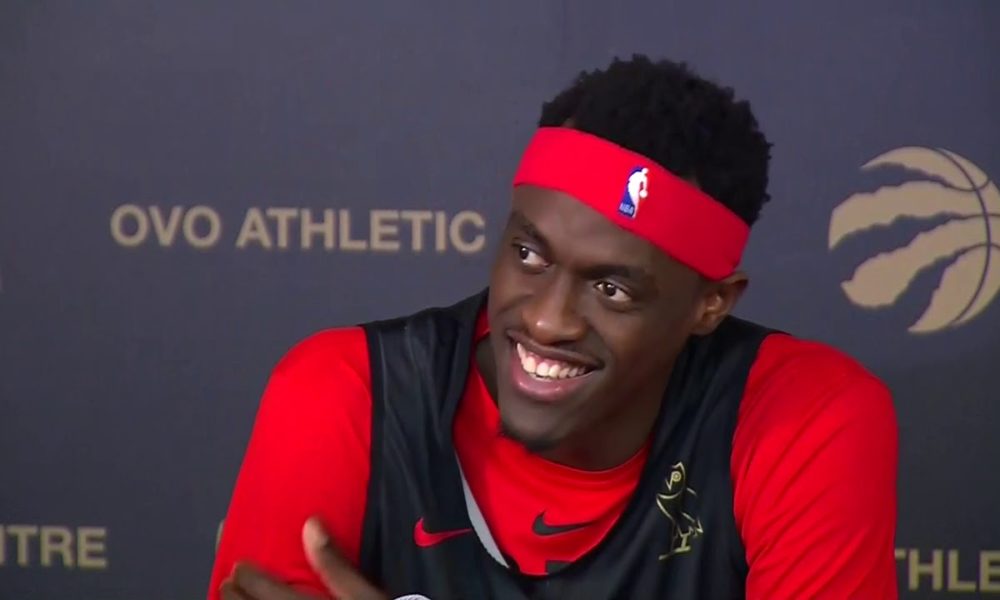Saturday night, after the frustrating result in game 1 for the Raptors, I went looking for answers, and the method I usually choose to do so is to look at the data. The problem is, the story the data kept telling me was that the Raptors mostly outplayed Orlando, and lost anyways. The game film, if we’re being honest, wasn’t much help either. The truth seemed to be that it was a bad game for a lot of players on both sides, and one player had an exceptional scoring night that led his team to the victory. If it’s that simple though, it’s hard to learn anything from it.
The focus, generally speaking, seemed to be on Kyle Lowry scoring no points in the game, and while I’d agree that is definitely a problem and he needs to score, that’s not really a predictive problem. Lowry has never scored zero points in a playoff game since joining the Raptors prior to Saturday, and him doing it for the first time in 50 career playoff games with the team is the very definition of an outlier, and teams shouldn’t, generally speaking, make adjustments based on outlier problems, because those will normally adjust on their own. Lowry will likely score in game two, but that doesn’t mean there aren’t things that the Raptors can also change to improve their own chances.
So where I then landed was looking for stretches of the game where Orlando made sustained runs, and things that could be linked to them, and I found two such stretches that were noteworthy. In the second quarter, Lowry subbed out at the 4:45 mark, with the game tied at 39, and was out of the game for a total of 1 minute and 51 seconds. When he re-entered, the score was 48-41 in favor of Orlando, a 9-2 swing in just under two minutes. This mirrors in the fourth quarter, where Lowry subbed out with 6:43 remaining, and the Raptors leading 88-84. Again, he was out of the game just briefly, returning with 3 minutes and 8 seconds of gametime having elapsed, and the score 94-92 in favor of Orlando, for a 10-4 run in three minutes time. Altogether here we have five minutes of game time where the net points were 19-6 in the Magic’s favor, in a game that ended with a three point differential, and all of these minutes against Orlando’s starters.
So, why these brief rests for Lowry against the opponent’s best lineup? Without this, Lowry would’ve played the entirety of both the second and fourth quarters, and that’s generally something that you want to avoid. Nick Nurse had made the decision to pull Lowry early in the first quarter, going away from his starting lineup, in order to have Lowry open the second quarter with the bench to mitigate any bad bench minutes. With the rotation shortened and OG Anunoby unavailable, there is some sense to this, but the Magic were able to capitalize and it’s something the Raptors may want to try to adjust for as the series moves on. If the Raptors’ are at their best with Lowry on the floor, something that all of the team’s past playoff data supports, then you want to match those minutes as closely as possible against Orlando’s best lineups, and you don’t want to be giving up stretches like they did in game one.
There is, actually, a precedent for the Raptors not giving up those minutes though, and it comes just two weeks ago when the Raptors dominated Orlando in the final regular season matchup. In that game, Lowry didn’t exit as quickly in the first quarter, coming out with just three minutes remaining in the quarter instead of the five left when he came out in game one, and he stayed out for the first two minutes of the second, allowing him to stay in for the remainder of the quarter. In that game, Orlando led early, but the Raptors were able to use their leaders for the last few minutes of the half and pick up a lead going into halftime that they capitalized on in the third quarter to take over the game. Now, in that game, the lead was large enough that the pattern didn’t need to play out in the fourth quarter, because the game was well at hand, but if the example set out there is that the Raptors can close out the game before the closing minutes, than it’s an example worth following.
Looking at the two games in tandem, two things seem reasonably predictive towards the rest of the series. One is that the Raptors starters will, at worst, hold their own against Orlando’s starters, and the other is that Orlando’s best lineups will capitalize if given the opportunity to play without the Raptors’ floor general playing. Given both of these things, and the fact that Lowry played less minutes in game one than we know he can give the team in a game they need to win, the directive going forward should be to deny Orlando those opportunities, and try to optimize Lowry’s minutes further to create advantages. If the Raptors’ starters are going to win their minutes, you want the advantages generated there to be building leads for the team, not merely trying to make up for deficits built at other points in the game.
And, again, as said many places elsewhere, none of this is to erase Lowry’s zero in game one. He also has to find ways to score and if anyone is aware of that, it’s definitely Lowry himself, and it’s reasonable to expect him to come out stronger in the second outing. If he does struggle again on the same level, then it becomes a predictive problem that has to be addressed, but until then, a few simple rotational changes seem to have the potential to pay huge dividends for the Raptors.



